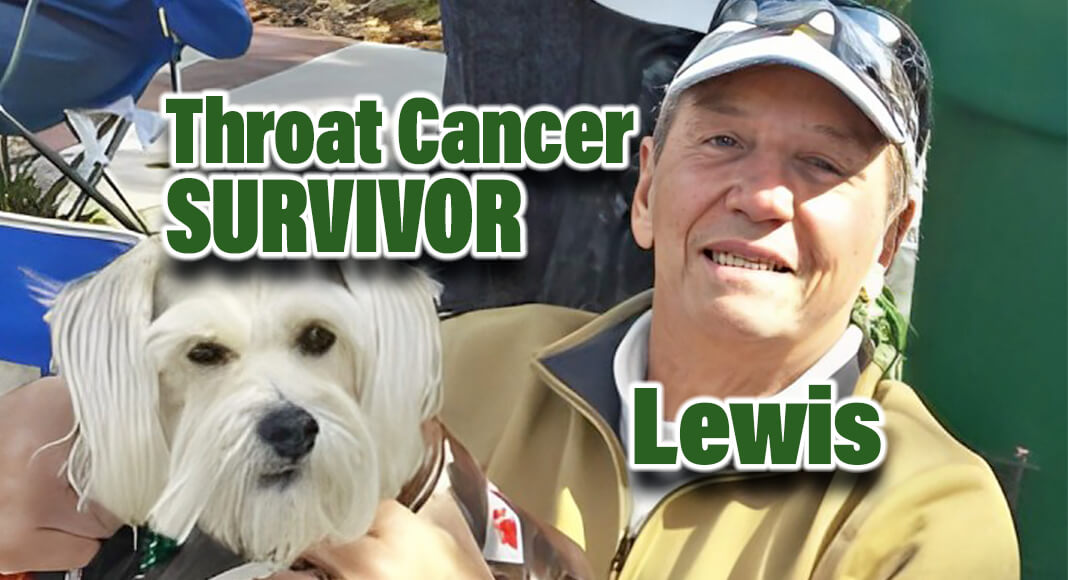
Mega Doctor News
Lewis was a busy man. He and his wife, Amy, were running an aerobic exercise group in their community and also volunteering throughout the north Florida area. On a hot and dry day in June 2011, when the air was filled with smoke from nearby wildfires, Lewis came home from tennis coughing and clearing his throat. He also had sores in his mouth, so he decided to go to his doctor.
“The doctor looked at my tonsil and told me, ‘That’s either the worst case of tonsillitis I’ve ever seen in an adult…or it’s something else,’” Lewis says. The doctor recommended more testing. The next day, after the tests, Lewis was told that it was a malignant (cancerous) tumor.
“When you hear the word ‘cancer,’ your world changes in an instant,” says Lewis.
More testing showed that it was an advanced stage of cancer—Stage IV—and to have surgery on it would require breaking his jaw bone and taking out a lot of tissue, permanently changing his appearance and ability to swallow and eat. Oncologists told him that there was just as good a chance that the tumor would shrink with radiation and chemotherapy as it would with surgery. Lewis had seven chemotherapy treatments and 35 radiation treatments over the course of the next seven weeks. By the end of treatment, he could no longer swallow and had to use a feeding tube. But the tumor had shrunk to the point that doctors could no longer detect cancer.
Out of a sense of gratitude for all the help they got, Lewis and Amy decided to start a support group for people with head and neck cancers. They contacted a national organization and got the materials to start a chapter where they live. Lewis and Amy handed out flyers to local doctors’ offices and hospitals. At the first meeting, six people showed up—including some they already knew but had no idea were dealing with head and neck cancer. Now, meeting attendance ranges from 25 to 45 people.
Then, in December of 2015, Lewis found a sore on his tongue that wouldn’t go away, even with steroid treatment. His oncologist did a biopsy, and found another tumor. He was scheduled for surgery right away, because he was told that he was not a good candidate for more radiation, as he had very high doses during the last round four years ago. Additional oncologists who reviewed his case thought he might lose his tongue and part of his jaw. But a biopsy after surgery showed that there were no cancer cells remaining on his tongue.
“I still have a high risk of the cancer coming back, but I’m still going to live my life,” Lewis says.
He recommends that people who are diagnosed with a head or neck cancer should listen to their doctors very closely—and carry a notebook to write down details about treatment. He and Amy also say that support groups help both the person diagnosed and the caregiver.
Smoking and alcohol use are major risk factors for head and neck cancers. Learn more about the causes of head and neck cancer.
Information Source: CDC










